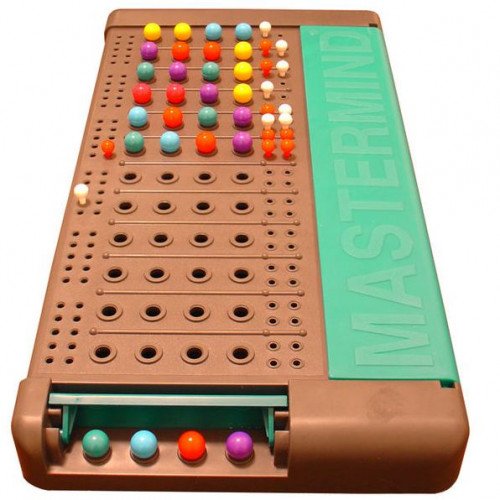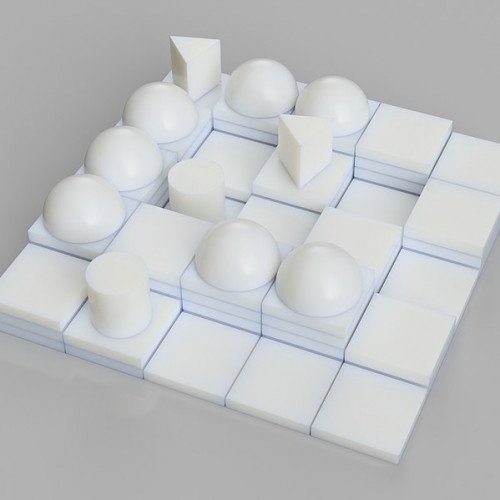MASTERMIND VS SANTORINI

MASTERMIND
Mastermind or Master Mind is a code-breaking game for two players. The modern game with pegs was invented in 1970 by Mordecai Meirowitz, an Israeli postmaster and telecommunications expert.It resembles an earlier pencil and paper game called Bulls and Cows that may date back a century. The game is based on an older, paper based game called Bulls and Cows. A computer adaptation of it was run in the 1960s on Cambridge University’s Titan computer system, where it was called 'MOO'. This version was written by Frank King. There was also another version for the TSS/8 time sharing system, written by J.S. Felton and finally a version for the Multics system at MIT by Jerrold Grochow. The modern game with pegs was invented in 1970 by Mordecai Meirowitz, an Israeli postmaster and telecommunications expert. Meirowitz presented the idea to many major toy companies but, after showing it at the Nuremberg International Toy Fair, it was picked up by a plastics company, Invicta Plastics, based near Leicester, UK. Invicta purchased all the rights to the game and the founder, Edward Jones-Fenleigh, refined the game further. It was released in 1971–2. Since 1971, the rights to Mastermind have been held by Invicta Plastics. (Invicta always named the game Master Mind.) They originally manufactured it themselves, though they have since licensed its manufacture to Hasbro worldwide, with the exception of Pressman Toys and Orda Industries who have the manufacturing rights to the United States and Israel, respectively. Starting in 1973, the game box featured a photograph of a white man in a white jacket seated in the foreground, with a young Asian woman of high caste standing behind him with the golden symbols of office visible on her sari, denoting the power and intellect behind the throne. The two amateur models (Bill Woodward and Cecilia Fung) reunited in June 2003 to pose for another publicity photo.
Statistics for this Xoptio

SANTORINI
Santorini is an abstract strategy board game for 2-4 players designed and released in 2004 by Gordon Hamilton and republished via Kickstarter in 2016 by Roxley Games. Inspired by the architecture of cliffside villages on Santorini Island in Greece, and primarily designed for two players, the game is played on a grid where each turn players build a town by placing building pieces up to three levels high. To win the game, players must move one of their two characters to the third level of the town. Each turn of play involves moving one of your two pieces around a 5-by-5 grid each turn and then placing a tile adjacent to the moved piece, building up that spot of the board. On subsequent turns, pieces may be moved onto one of these built-up tiles, but only one level up at a time. Pieces may also be moved down any number of levels. Players may also place a special dome tile on top of a three-level building, which prevents a player from moving onto that spot for the remainder of the game. The primary winning condition is to get one of your pieces onto the third level, though players may also win if their opponent is unable to make a move. The Roxley Games version of Santorini introduced a god powers variant, which gives each player a unique way to break the rules. After being directly released and sold by Hamilton in 2004, Roxley Games ran a Kickstarter campaign during March-April 2016, drawing over 7,100 backers and raising over C$700,000, the most successful Kickstarter campaign ever based in Alberta. While the original release used plain white blocks as components, the Roxley version featured an enhanced cartoon-like look to the game, which Hamilton credits for success of the Kickstarter campaign. The game was released in retail outlets in January 2017.